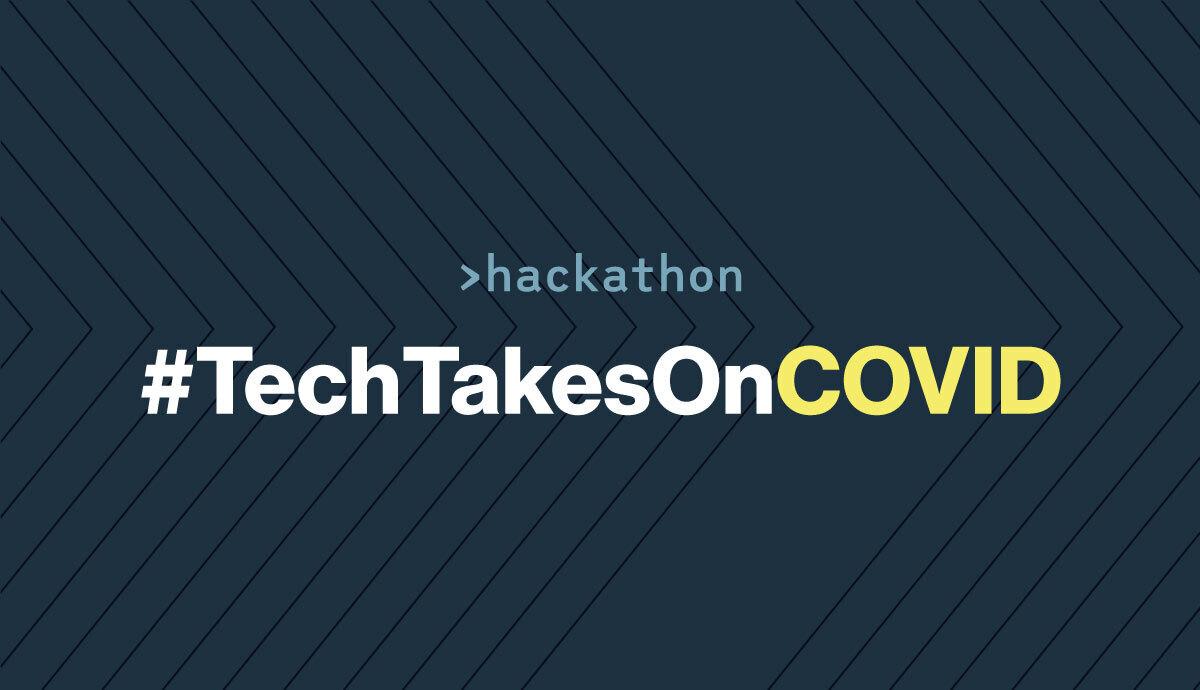
Hiring + recruiting | Blog Post
Coding Tests in the Age of AI: Transforming Tech Hiring
Laura Berlinsky-Schine
Share this post
What if a coding test could adapt to the software developer’s skills and weaknesses? Or analyze their behavior during the assessment? When artificial intelligence is applied to the process, this is all possible.
With the rise of AI comes the need to reconceptualize how we evaluate skills. AI touches practically every industry, none more so than software development—the very field that set the stage for artificial intelligence’s dramatic growth.
Coding tests have long played an important role in the tech hiring process. Tech giants like Google require comprehensive technical interviews, including coding tests, to ensure that the candidate can flex real-world skills.
Today, coding tests and the entire technical interview process can be enhanced with AI. There are numerous benefits, ranging from automation to skills mapping. Of course, as with any AI use case, there are challenges and limitations.
How can you successfully run tech assessments in the age of AI? Let’s take a look.
Traditional Coding Tests
Designed to assess a software developer’s technical skills and problem-solving abilities, a coding test is frequently used in the hiring process, particularly as part of or in addition to the technical interview.
Traditional coding tests have usually been conducted via pen-and-paper assessments, whiteboard challenges, or online coding platforms such as HackerRank. They evaluate specific competencies as well as more holistic programming knowledge.
While standard coding tests can be useful, they do have several limitations. For example, these assessments typically consist of a fixed set of problems given to the same candidates repeatedly. That makes it relatively easy for candidates to look up the answers and memorize them without truly understanding them. What’s more, today, tools like ChatGPT can solve actual problems directly.
Moreover, traditional technical assessments test programming knowledge as though it exists in a vacuum. There’s no real-world applicability to these scenarios. They also focus exclusively on the end result, rather than the approach, style, or process the candidate took to get there.
Traditional tests are largely performed and graded manually or through automated methods that verify whether the responses are correct or incorrect. Because humans are evaluating the outputs, they may introduce bias. Ultimately, the candidate receives either a passing or failing grade, with little to no feedback provided and no attention paid to how the problems were solved.
AI Coding Tests
AI has emerged as a driving force in many areas of software development. The technology is becoming increasingly important; in fact, most U.S.-based developers say they use AI-based coding tools in and outside their work.
It’s no surprise, then, that AI has found its way into the tech hiring process. Running assessments is easier now than in the past. Already, there are numerous tools available to make coding assessments logistically easier for both employers and candidates.
Skillspace, for example, provides AI-powered coding assessments. Final Round offers an Interview Copilot that leverages AI to generate advice for interviewees in real time.
AI adds several elements and features to code tests.
Automated Coding Test Creation
AI automates the process of creating and implementing code tests. It can generate dynamic coding problems that vary according to the specific skills and experience necessary for the role. AI can also create different versions of the same problems by varying the data sets or parameters. This helps ensure that each test is unique to the candidate and prevents developers from finding the answers online easily.
Adaptive Testing
AI facilitates adaptive testing. That means it adjusts the difficulty of the questions in real time based on how the candidate is performing, enabling a higher degree of personalization. For instance, an AI system might provide a hint or suggestion if the developer is struggling with a question. Ultimately, adaptive testing means the hiring manager will gain a more holistic view of the candidate’s skills.
Plagiarism and Cheating Detection
To ensure fairness and integrity throughout the tech assessment, AI can compare candidate submissions against others in a large database. It can also compare them against publicly available code. This helps prevent plagiarism.
The technology also has the power to monitor candidates through video and audio analysis while they’re taking tests, helping combat cheating. However, you should be aware of the ethical considerations with AI proctoring, such as privacy concerns.
Intelligent Grading
There’s no need for manual grading of coding tests when AI is involved. AI can automatically check the code for accuracy and efficiency, as well as provide performance metrics. Additionally, it can deliver real-time feedback to help candidates learn from their mistakes.
Behavioral Analysis
Behavioral analysis incorporating AI/machine learning is becoming increasingly prevalent in the hiring process across industries. Research finds a high degree of accuracy in AI-driven behavioral analysis, in some cases more than 85%.
By analyzing nonverbal cues, such as the number of edits made to the code, the time spent solving problems, the typing patterns used, and the debugging approach taken, AI can provide insight into the candidate’s habits and style.
Bias Reduction
Unlike when humans manually grade coding tests, AI can focus entirely on code quality and problem-solving abilities without considering the candidate’s background, demographics, or other qualities. This can mean less biased evaluations.
However, it’s important to note that an AI model’s performance depends on the quality of the data used to train it. If the data is inherently biased, the model will be, too. This is a complex and critical problem that demands more investigation.
Benefits of AI-driven Coding Tests
Personalization
AI-driven coding tests can adapt to the individual based on their skill level. They can also generate dynamic questions and problems geared toward particular roles.
Personalization leads to a stronger candidate experience. That, in turn, helps strengthen your reputation. It also means you’ll gain a better understanding of how the developer will fit into your organization and how you can leverage their strengths.
Real-World Problem Simulation
Grappling with real-world scenarios gives software developers the opportunity to showcase their practical knowledge, not just their theoretical abilities. AI can simulate these problems, such as by having candidates build complex applications or debug intricate issues. These tech assessments also align the knowledge tested with the role requirements.
Automated Feedback and Learning Paths
AI tech assessments can provide instant feedback, not only identifying mistakes but also suggesting improvements, offering alternative solutions, and presenting a big-picture view of the candidate’s skills. Using automated feedback, developers can learn and grow.
This is also helpful for skills mapping. Businesses may use these types of assessments to identify the best roles for their candidates and help them further develop their capabilities.
Challenges of Using AI in Coding Tests
AI Bias and Fairness
While AI can reduce bias by automating various aspects of the technical assessment, it can also introduce biases. Biases can crop up in training data when the information is not fully representative of all types of groups the AI model affects. They can come into play in evaluation metrics, too.
To ensure fairness, it’s essential to perform regular auditing of AI systems. This can help mitigate bias and ensure equal opportunities for your candidates.
Privacy and Data Security
AI models work with enormous amounts of personal data. Employers must protect this information and ensure compliance with regulations in their areas of operation, such as the EU’s GDPR. They should also use a variety of techniques to safeguard candidate data, including encryption and anonymization techniques. Additionally, they must be transparent about how they will use this information and obtain consent to utilize AI in the hiring process.
Best Practices for Implementing AI-driven Coding Tests
As with any AI-powered platform, it’s pivotal to establish best practices to ensure the effectiveness, fairness, and security of your coding tests. In addition to processes you’ve already established for your hiring practices and technical interviews, consider incorporating the following steps:
- Define objectives.
- Utilize reputable AI platforms.
- Establish ethical guidelines and standards for administering tests and evaluating results.
- Address privacy, data security, and ethical concerns with staff and test-takers.
- Be transparent and communicative with candidates.
- Train all staff involved thoroughly on how to use AI assessments.
- Focus on the candidate’s process and logic, not just their results.
- Randomize questions and data to make it more difficult for candidates to cheat.
- Use real-world scenarios.
- Utilize adaptive difficulty levels.
- Provide immediate feedback.
- Continuously review and update AI models.
The Future of Coding Tests in the Age of AI
AI is already changing the role of the software developer dramatically. From automating rote and repetitive tasks to optimizing code, it’s setting the stage to streamline the development cycle and enable engineers to focus on innovating.
This transformation in the software developer’s core role extends to the hiring process. As we move deeper into the era of AI, the technology will play a pivotal role in ensuring that employers find the right professionals for the job.
As AI models become more sophisticated, so are the coding tests they power. Now, we’re seeing employers leverage machine learning, natural language processing (NLP), and other subsets of AI play an integral role in the software engineer hiring process. Not only can they assist in evaluating technical skills, but they can also be used for soft skills assessments like communication and critical thinking.
In the future, we will likely see AI-powered coding tests become the software industry standard. To prepare for this inevitability, businesses should invest in AI tools and platforms relevant to their fields and industries. They should also ensure all HR, recruiting, and technical staff are properly trained on how to leverage AI tools effectively.
Remember that this is not a static process. AI is evolving, and your evaluation methods need to as well. You should continue to evaluate and improve your code testing processes (and all your hiring processes) to keep up with the times—and your competitors.
